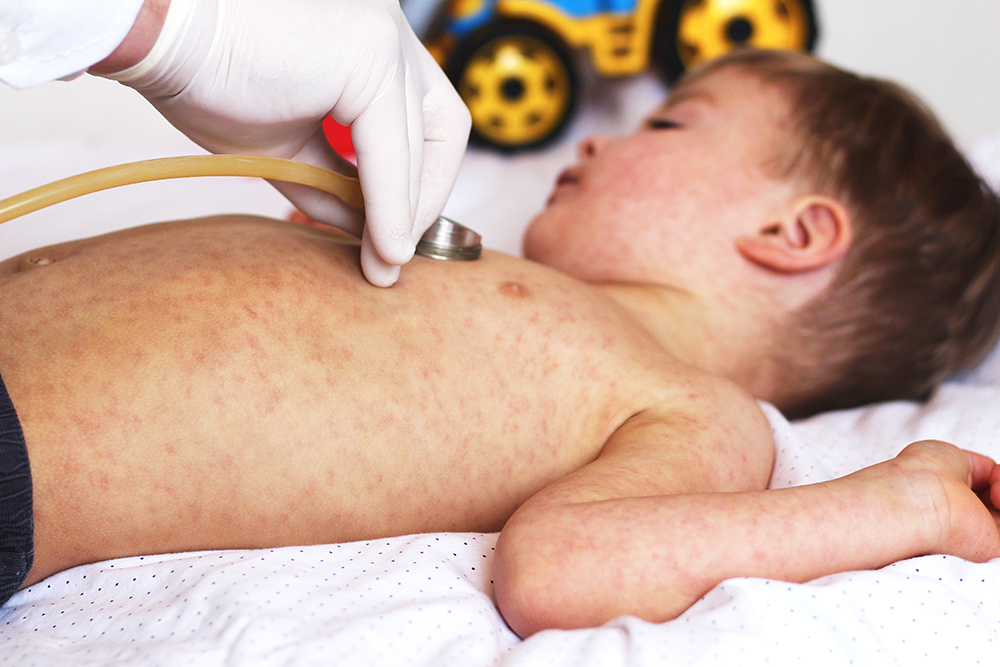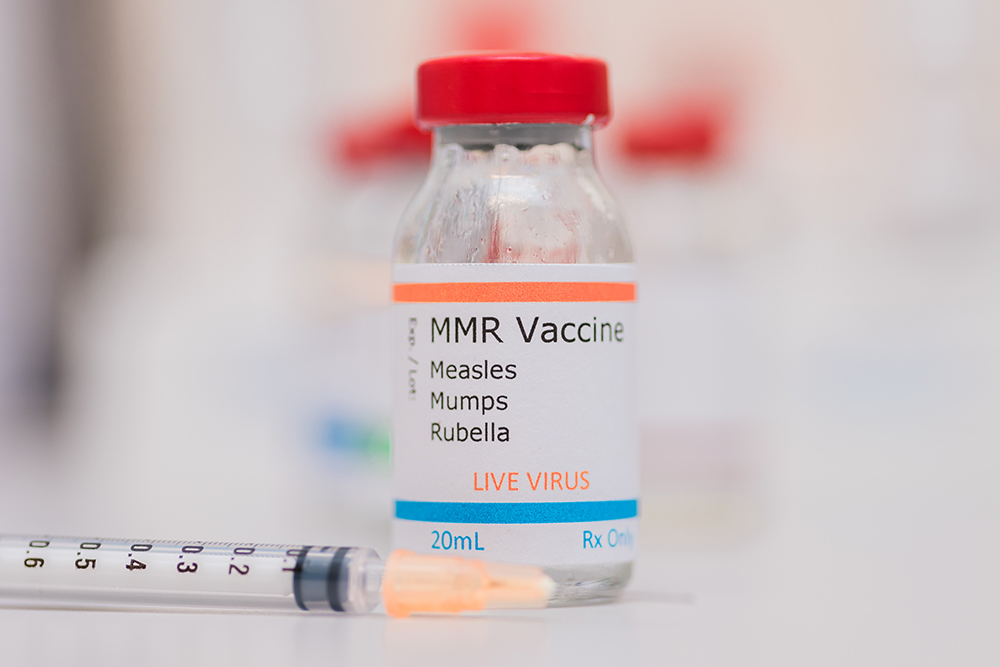Winston Salem, NC 27101
Phone: 336-703-3100
Fax: 336-748-3292
Measles, also called rubeola, is a highly contagious illness caused by a virus. It starts with fever that gets worse over several days, cough, runny nose, and watery, red eyes. After a few days a rash develops and lasts up to a week. Then it gets better by itself. Some people get a more serious case of measles which can cause diarrhea, middle ear infection, pneumonia (lung infection) or encephalitis (brain infection).
Measles illness during pregnancy can cause early labor, miscarriage, and low birth weight infants. Measles in people with AIDS or weak immune systems can be very severe. In the United States, 2 out of 1000 people who get measles will die from it, usually from the complications of the pneumonia or encephalitis caused by the infection.
Measles is prevented through vaccination. Before there was a vaccine, it is estimated that there were over 3 million measles cases every year in the US, and 500 deaths due to measles. The vaccine that we use today, called MMR, for measles, mumps and rubella, is highly effective. Measles vaccination protects not just the person being vaccinated, but the community around them, including babies less than 12 months old who are too young to be vaccinated.

NCDHHS strongly urges all residents to ensure they are up to date on the MMR (measles, mumps, rubella) vaccine. Children should receive the first dose of the vaccine at 12-15 months and the second dose at 4-6 years of age. Adults who have not been vaccinated or are unsure of their status should consult their health care provider. Please see the CDC’s measles FAQ and vaccinations page for more information.
Supplements like vitamin A are not substitutes for vaccination and do not prevent measles. Qualified health providers may, in some cases, suggest vitamin A to ease symptoms of measles.

For those who need vaccination, Forsyth Public Health is offering a drive-up clinic by appointment at 799 Highland Ave. for Measles, Mumps and Rubella (MMR) vaccines on Monday-Friday from 8 a.m-5 p.m.
Cigna, Aetna, and Medicaid insurances are accepted. A limited supply of vaccine is available to individuals without insurance. Please call 336-703-3300 for an appointment and more information.
Copyright © 2026 Forsyth County, North Carolina.